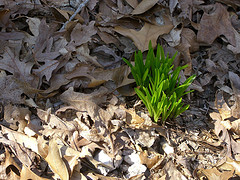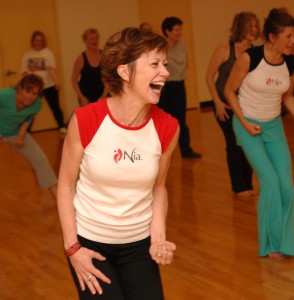by Michelle Sutton-Kerchner
If this morning’s bird song sounded more like an irritating chirp, and the buds and blooms are mere allergy triggers, it’s time to take action. It’s time for a little pleasure perk …
Seasonal depression is commonly associated with the fall. It makes sense. Nature turns gray and hibernates; skies become darker for longer; and cold temperatures reduce opportunities for fresh air, sunshine, and casual socializing. Those who suffer with springtime mood shifts seem an enigma. This fact alone exacerbates such annual struggles by suggesting something unusual is transpiring.
Relax. You are not alone. The transformations that occur from one season to the next are powerful. They affect nature, the earth’s spin on its axis, the time shown on your ringing alarm clock during pre-dawn mornings. The time shown on a child’s night table clock that reflects bedtime when the sky is still pink. (Anyone who has persuaded a toddler to bed before a July-8:30 p.m. sunset knows the futility here.)
With all that is transpiring on the earth around us, surely we, ourselves, are affected. Hormones, circadian rhythms, and shifted sleep schedules work together to cause havoc on our routine-loving systems. Subconsciously, the shift occurring in our world can trigger feelings of sadness and perhaps a period of depression. It generates a chemical reaction.
Spring isn’t an exception. The fact that it brings bright changes– the tapestry of flowers and trees coming to life, the lightened sky in evenings, random blurs of white as bunnies bounce by– may make it harder to understand. You may wonder why a brighter world is darker for you. To discover such a reaction is common, and even diagnosable, can relieve a large part of this seasonal burden.
Treat Allergies
 Seasonal allergies affect about 36 million Americans. Along with their physical annoyances, there is a strong connection to your disposition. Often, allergy symptoms cause irritability, fatigue, and depressed mood as you sniffle, wheeze, and itch your way through the day. You may feel sick, look puffy and red-eyed, and be tired from simply running for tissues.
Seasonal allergies affect about 36 million Americans. Along with their physical annoyances, there is a strong connection to your disposition. Often, allergy symptoms cause irritability, fatigue, and depressed mood as you sniffle, wheeze, and itch your way through the day. You may feel sick, look puffy and red-eyed, and be tired from simply running for tissues.
Research proves there is a doubled risk for depression in allergy sufferers. Those whose allergies are severe enough to see an allergist are at a triple risk for depression. The scientific reason behind the increased risk is not clear yet.
Researchers speculate it could be a side-effect of allergy medications (low energy, decreased concentration, and the like) or the inability to function as well during peak allergy season. Those at risk for depression should be aware of allergies effect on mood, and their increased risk for an episode during times of extended exposure.
Find ways to treat allergies, with either holistic remedies such as the neti pot or a medication with minimal side-effects. For tips on exercises shown to help relieve sinus pressure, see “Work Out Sinus Pressure” at https://fitnessandwellnessnews.com/health/work-out-sinus-pressure. For those who suffer specifically from asthma, check out “Breath Easy…” at https://fitnessandwellnessnews.com/health/breathe-easy-you-can-exercise-with-asthma-allergies. Discover how exercise strengthens and conditions the lungs to help keep you breathing freely.
If you are suffering from clinical depression– exacerbated by seasonal changes, allergies, or simply everyday life– have the courage to see your physician. It’s only fair that you enjoy the season’s brilliant backdrop in color rather than perceived black-and-white.
Get Busy Enjoying the World
 Although there is no scientific proof, sometimes a quick remedy for a seasonal mood swing is to surround yourself in it. Step outside, touch the ground and be grounded, breathe in the changing tides of air. Do you smell the heavy dew or rain of spring? Fresh grass? Are sprouts growing from the soil?
Although there is no scientific proof, sometimes a quick remedy for a seasonal mood swing is to surround yourself in it. Step outside, touch the ground and be grounded, breathe in the changing tides of air. Do you smell the heavy dew or rain of spring? Fresh grass? Are sprouts growing from the soil?
This way of confronting the change empowers. And, you may also find yourself chatting with a passerby, from which the connection alone can cheer you. It’s time to find yourself among the world, a catalyst of the changing world with your own personal growth.

Try gentle stretches or a light warm-up in your backyard before heading to the Center. Associate the newness of the season with peace, happy thoughts, and flexibility.
TGIF: People Are Happiest on Fridays
Although we can’t revise the calendar, we can use its perks to inject a little Friday spirit into the rest of the week. Research performed by psychology professor Richard Ryan and colleagues proved the phenomenon known as the “weekend effect.” Moods of study participants were tracked for three weeks and measured at various times of day. From Friday evening until Sunday afternoon, participants enjoyed increased energy, improved moods, and decreased aches and pains. (Another reason not to skip your workout during the weekend.)
The “weekend effect” was indiscriminate. It affected everyone, regardless of professional status, relationship situation, educational background, and age. Physical symptoms related to stress were recorded, including energy levels, digestive issues, headaches, and respiratory troubles. Participants reported improvement both mentally and physically during the weekend hours.
It doesn’t take a study to announce weekends are fun. However, the study’s follow-up research provides reasons for this increased well-being. We can create strategies from this information to use all week, each month, and all year– even Mondays. With a little effort, you can keep seasonal lows off your radar.
The researchers indicated “People experience greater independence and relatedness [on the weekend], which are, in turn, related to higher wellness.” The workweek can be overwhelming, with its external controls, hectic pace, and demands at work and home. Usually, the weekend affords a more relaxed pace. If you’re late for softball practice, your career won’t be jeopardized. You also struggle less to balance. Your roles are reduced so your sense of self is more stable.
Capitalize on the Freedoms of Your Workweek
A lunch break is ideal for regrouping with your spouse or nourishing friendships usually saved for weekends. If you don’t have time for a formal lunch, grab a coffee at the corner stand. Check in with an e-mail. Send a card or shop for a gift. These activities take you beyond your desk, if not physically than figuratively. They’re small reminders of life outside the office.
If you typically do the Family Swim at the Center over the weekend, stop in for a quick dip in the pool. Memories of splashing around with loved ones will remind you of good times to come. Meet your workout buddy and sneak in your weekend fitness routine during a weekday evening or early morning. Stealing little weekend joys like this reduces stress, and maybe even makes you feel a little mischievous.
Happiness is the Exerciser Who Smiles

If you’re not enjoying your workout, it’s time to try a new one. Incorporating fun into your fitness routine is one of the most important elements. It assures consistency. When exercise is a chore, we approach it as such. We all know chores are the easiest thing to eliminate with any old excuse. Repetitive routines can limit results, not to mention bore you into less healthy pastimes like mindless eating.
Check the mirror for proper form– and attitude. If you look bored and are simply going through the motions, it’s time for a lift. Speak to a personal trainer about different exercises. Learn to use a new piece of equipment or introduce a fresh exercise tool. Find your inner fish and hit the Aquatic Center. If you typically do water workouts, visit the Exercise Floor. Experiment with a new Group Fitness class. Find when your weekend class is offered during the week and squeeze it in.
Although your comfort zone may seem nice, is it really delivering for you? Have you reached your ideal weight? Do you still get pleasure from your exercise routine?
Challenge yourself in new ways. You’ll gain a fresh spark. Combined with all the benefits a consistent workout generously gives your body, your mind will grow as well. You’ll discover new strengths, reduced stress, and greater confidence.
Studies continue to confirm: The more physically active one is, the greater one’s general feelings of excitement and enthusiasm. Increase physical activity and increase your pleasant-activated feelings. Researchers from Penn State University discovered doing more exercise than your typical routine provides an additional burst of pleasant-activated feelings. Want to bring on a happy mood? Fit in a little extra exercise.
Practice Kindness
When glum and stressed, altruism might not by the solution first in mind. Yet, kind acts and volunteering are associated with greater well-being and increased resilience. Whether it’s a fellow exerciser in need of encouragement or an ongoing cause, dedicate your time and thoughts to radiate positive energy. It’s also a great distraction from your own stresses. Helping others feel good improves your own self-worth. You also develop a sense of community, from which you gain your own support and enjoyment.
Perhaps you aren’t able to make a big commitment. This should not be an added stressor. Skip the official volunteering. Go for small, random acts of kindness. Start with a smile. Pay a compliment. You will get back in heaps.
Promises
 Spring is filled with hope. It’s the season for new beginnings. Confront the changes it brings and greet the fresh opportunities. Those birds are signing for you. Wake up, wake up. Be transformed.
Spring is filled with hope. It’s the season for new beginnings. Confront the changes it brings and greet the fresh opportunities. Those birds are signing for you. Wake up, wake up. Be transformed.
TGIT: Thank God It’s Today.
Sources
“Exercise Makes Us Happy– It’s Science,” by Amanda L. Chan at www.huffingtonpost.com.
“Sad in the Spring? Allergy-Mood Link Is Real,” by Elizabeth Landau at www.cnn.com.
“Study: Why It’s Good to Get More ‘Weekend’ in Your Week!” by Elizabeth Scott at www.about.com.
Image Credits
Blooms on blue (introductory photo): http://www.flickr.com/photos/drswan/4751189845/
Sad in spring: http://www.flickr.com/photos/ziubinski/5644613145/
First sprout of spring: http://www.flickr.com/photos/aforero/427737547/
Squirrel stretch: http://www.flickr.com/photos/thartz00/4822239125/
Single flower: http://www.flickr.com/photos/phuonglovejesus2782010/6091076251/
 Fitness & Wellness News Your Source for Fitness News, Wellness News, Health News, and Nutrition News!
Fitness & Wellness News Your Source for Fitness News, Wellness News, Health News, and Nutrition News!



